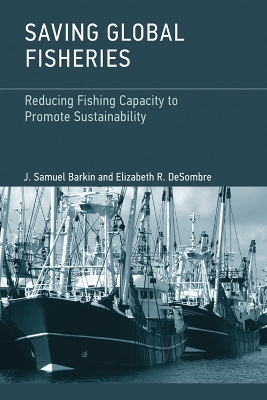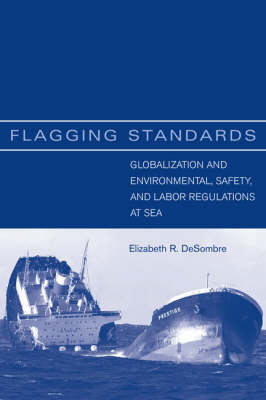The MIT Press
2 total works
A proposal for a new global approach for fisheries focused on reducing fishing capacity and providing incentives for long-term sustainability.
The Earth's oceans are overfished, despite more than fifty years of cooperation among the world's fishing nations. There are too many boats chasing too few fish. In SavingGlobal Fisheries, J. Samuel Barkin and Elizabeth DeSombre analyze the problem of overfishing and offer a provocative proposal for a global regulatory and policy approach.
Existing patterns of international fisheries management try to limit the number of fish that can be caught while governments simultaneously subsidize increased fishing capacity, focusing on fisheries as an industry to be developed rather than on fish as a resource to be conserved. Regionally based international management means that protection in one area simply shifts fishing efforts to other species or regions. Barkin and DeSombre argue that global rather than regional regulation is necessary for successful fisheries management and emphasize the need to reduce subsidies. They propose an international system of individual transferable quotas that would give holders of permits an interest in the long-term health of fish stocks and help create a sustainable level of fishing capacity globally.
Shipping is among the most globalized of industries. Shipowners can choose where to register their vessels, based on cost, convenience, and the international and domestic regulations that would govern their operation. This system of open registration, also known as flags of convenience (FOC), can encourage a competition in regulatory laxity among states that want to attract shipping revenues--a race to the regulatory bottom. In Flagging Standards, Elizabeth DeSombre examines the effect of globalization on environmental, safety, and labor standards in the shipping industry. She finds that the economic advantages of lowered standards can be offset by the collective action of international organizations, states, and nongovernmental actors to exclude low-standard ships from the advantages of globalization. Open registries are pressured to raise their standards while traditional maritime states lower theirs somewhat when they create international or second registries. The result is a competition not for the regulatory bottom but for the middle ground. DeSombre examines the decisions made by states and shipowners that lead to this race to the middle and explores the effectiveness of strategies used by both state and nonstate actors aimed at raising regulatory standards, including port control, labor actions against FOC ships that fail to meet international labor standards, and trade restrictions against shipped goods that were not obtained within the requirements of international agreements. Globalization, DeSombre finds, may lead to a downward trend in regulatory standards but has also created many opportunities to raise these standards and does not necessarily signal a reduction of state control.

